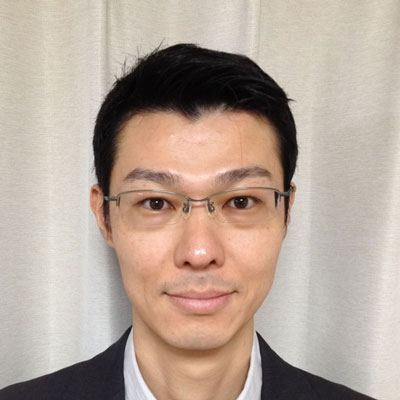- ON THE DECADE
- THE DECADE'S CAMPAIGN
- REPORTING ON PROGRESS
- THE DECADE'S PROGRAMMES
- FOCUS AREAS
-
- Access to sanitation
- Financing water
- Gender and water
- Human right to water
- Integrated Water Resources Management
- Transboundary waters
- Water and cities
- Water and energy
- Water and food security
- Water and sustainable development
- Water and the green economy
- Water cooperation
- Water quality
- Water scarcity
- FOCUS REGIONS
- RESOURCES FOR
- UN e-RESOURCES
Water for Life Voices
Voices from the field: case studies
Seio Utsunomiya
International Affairs Office, Tourism, Culture and Exchange Bureau, Kumamoto City, Japan

"“Kumamoto is Japan’s number-one pure groundwater city: the biggest city where all the water is supplied by groundwater. This is a very unique and precious thing. We use water for agriculture, industry and for daily use. The economy depends on it. Preserving it is our top priority. It will continue to be the most important issue.
People didn’t appreciate how lucky they were to have this pure source of groundwater, or the seriousness of water issues. The most difficult aspect was the first step. Citizens took water for granted and didn’t think about it. Our education campaign told them why they should care, how they were lucky to have this resource but that the groundwater quality and quantity was decreasing. How things seemed fine now, but that in 10 or 20 years, without action, the situation could be very difficult.
Our biggest challenge at first was talking with the farmers. They were concerned that their agricultural production might suffer with the changes they were suggested to make. They were unsure – would the proposed changes have any impact on groundwater? They also feared that any increase to their already substantial workload would affect profits. Now they believe in the cause and know that their efforts are vital to the region’s future.
Another challenge was to maintain a healthy economy alongside our efforts. City planning for Kumamoto is very complicated. We can’t expand easily. Our resources are precious and those who come here must abide by the rules. We have put in place measures to survey rivers and see if proposed projects are environmentally sound. There must be agreement not just from those in charge of maintaining the city economy but also those charged with water conservation and the environment. For example, businesses which will impact natural resources are obligated to compensate. They must plant trees to safeguard the watershed, or take some equivalent action.
Because of our efforts, we use less chemical pesticides in agriculture which will hopefully improve people’s health. And we have been planting broad-leafed trees to encourage biodiversity. In the future, we hope to collect data to support this. Already people know how important it is to buy local produce, both to sustain the local economy and to reduce the carbon footprint of our foods. We arrange questionnaires each year asking people: ‘do you feel groundwater has been preserved as shared property?’ In 2008 48% said ‘yes’. In 2013, after we received our UN Water for life best practice award, 59% said ‘yes’. Our target is 70%. We continue to run awareness campaigns. More people are aware of the need for conservation and receiving the award has helped increase the feeling of shared property.
Now people are very conscious of water issues. They are growing accustomed to our campaigns and why they are important; for example, saving water in the summer, children’s essay writing competitions on the theme of water conservation, etc. Things have improved and we continue to try to do better. It could have been a real problem without action, we feel lucky we were able to do something.
We plan decade by decade. We will complete the first decade of our project this year. The subsidies for the farmers to flood their land will continue; the whole project will continue for now, which shows how successful we have been. But each decade we will review, and see where we can improve. In the future, we will expand our efforts to neighbouring cities, more companies will come here. This will not be a burden, they can help. Our UN Best Practice Award has become a symbol and it has encouraged people to take these efforts seriously." The initiative ‘Basin wide groundwater management using the system of nature’ was awarded with the Category 1 'Best water management practices' Water for Life UN-Water Best Practices Award in 2013.
The initiative ‘Basin wide groundwater management using the system of nature’ was awarded with the Category 1 'Best water management practices' Water for Life UN-Water Best Practices Award in 2013.
>> Intro
>> Progress
>> Pride
>> Hope
>> Your Voice
>> End
>> Full Exhibition
>> Ecosystems
>> Empowering communities
>> Food security
>> Gender and water
>> Groundwater
>> Hygiene
>> Open defecation
>> Participation
>> Sustainable development
>> Water and culture
>> Water and disasters
>> Water and energy
>> Water and health
>> Water for cities
>> Water efficiency
>> Water quality
>> Water scarcity
>> Voices of experts
>> Voices from business
>> Voices from the civil society
>> Voices from the field: case studies
>> Africa
>> Asia and the Pacific
>> Europe
>> Latin America and the Caribbean
>> Middle East
>> Oceania
>> Decade’s achievements. From MDGs to SDGs
>> Five years of UN-Water "Water for Life"
Awards 2011-2015
>> Water for Life Voices
Copyright | Terms of use | Privacy notice | Site Index | Fraud alert | Help




